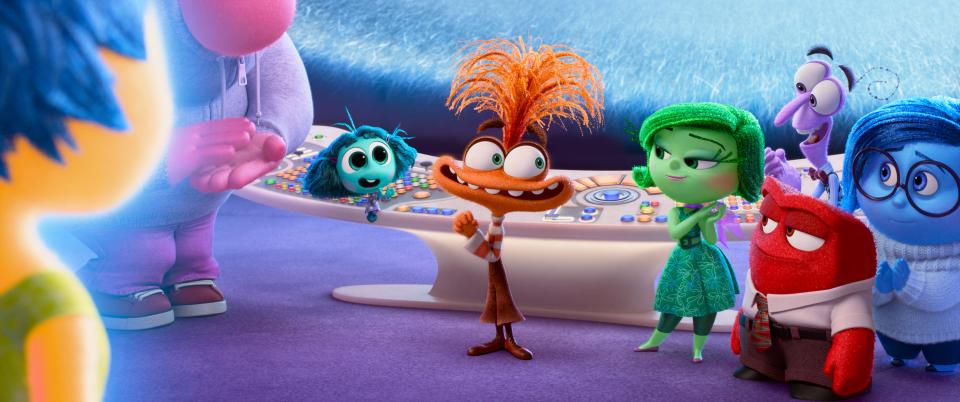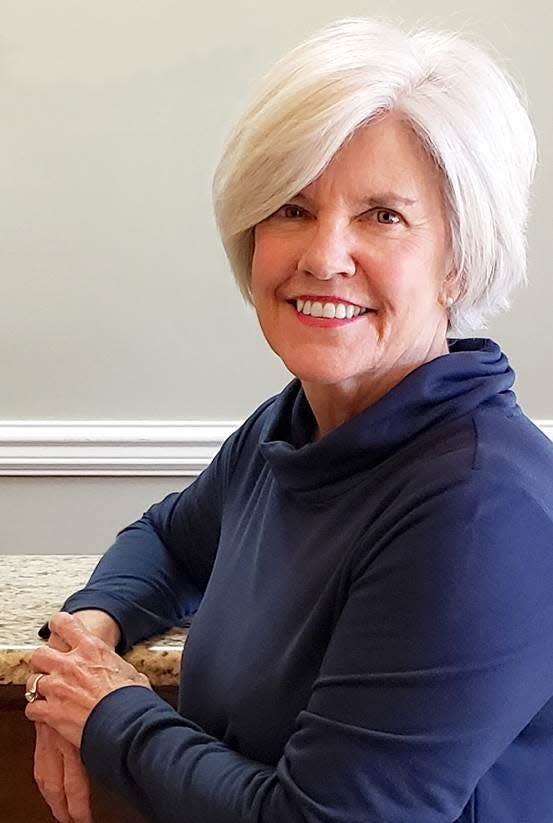You do you: Celebrate International Being You Day | Candace McKibben
- Oops!Something went wrong.Please try again later.
My daughter-in-law, Kady, is a delight. She has a very positive outlook on life and is a great encourager to her husband, children, family, friends and her employees. Some of her sayings are both wise and intriguing. I am fond of the question she asks her 4-year-old daughter, Carter.
“Are you helping or hurting?” It seems like a very practical evaluation for all of us at certain times. Or her optimistic assessment of her daughter’s living conditions in a few short words, “She is living her best life.” But my favorite just might be, “You do you.”
According to the Yale University Grammatical Diversity Project, “English in North America,” the phrase “you do you,” means something like ‘be yourself’ or ‘do what you want to do.’ There is not agreement on when or where the phrase originated, some harking back to Mary Shelly’s “Frankenstein” over 200 years ago while others crediting turn of the millennium hip-hop tracks.
There is also no consensus on the meaning of the term. Some highlight narcissistic, self-focused absorption even at the expense of others, while most see it, as described by Yale, as something akin to self-actualization, being true to yourself, being authentic. I believe Kady ascribes to the latter.

Being You Day
Four-years-ago now, author, speaker, and encourager of authenticity, Dr. Dain Heer, introduced the first International “Being You” day, held on May 22, 2021. It was created after Heer received thousands of emails and messages from readers thanking him for the book he had written, “Being You, Changing the World,” published in 2011.
International Being You Day is a celebration of individuality, self-expression, and authenticity. As of 2023 it is being honored annually, not in May but on June 22. This year the emphasis is on not judging oneself harshly but loving one's self.
This week, while combing through boxes and file drawers in anticipation of downsizing to a smaller home, I came across a folder that despite years of not seeing it, felt warmly familiar. Labeled “self-love,” it contains notes and articles that I have collected through the years defining the importance of loving ourselves. The file folder is rather thick, and I think that is because self-love is both important and difficult for many of us to practice.
One article in the file is by psychiatrist, Scott Peck, who wrote a sequel to “The Road Less Traveled,” a book he titled, “Further Along the Road Less Traveled.” In it he made a distinction between self- love and self-esteem.
“Self-love implies the care, respect, and responsibility for and the knowledge of the self” he writes. “It is about taking an honest assessment of ourselves and regarding ourselves as important,” whereas “self-esteem is feeling good about ourselves at all costs.” He explains that we should always love and value ourselves, even if we should not always esteem ourselves.
In another article tucked away in my self-love file, psychologist, Dr. Kristen Neff, compares self-esteem and self-compassion. She defines self-compassion as treating yourself with the same type of kind, caring support and understanding that you would show to anyone you cared about.
By contrast, she writes, “self-esteem is all about being special and above average. You subtly try to position yourself above other people so you can maintain your self-esteem.”
Neff challenges us to consider is life all about being better than others? Is it all about being special and above average? Or is it about being a human being as happy and healthy as you possibly can be, about reaching your own potential? Which seems to me to be the intent of International Being You Day. The intent of “you do you.”
An 'important message for our time'

Recently, I learned of the release of the movie “Inside Out 2.” My church watched and discussed the original “Inside Out” released by Pixar in 2015. Our goal was to examine the theology of emotions, considering what we learn from the various feelings we have and how best to manage them.
Dacher Keltner, one of the world’s foremost emotion scientists, the cofounder and faculty director of the “Greater Good Science Center,” and the scientific consultant for both “Inside Out” and “Inside Out 2,” says of the sequel: “I think “Inside Out 2” has a profoundly important message for our time about the significance of self-acceptance and the value of meaningful relationships.”
Like Heer’s emphasis in “Being You Day,” Peck’s promotion of self-love, and Neff’s research on self-compassion, the new movie about emotions encourages self-acceptance.
I am attending the annual convention of the Cooperative Baptist Fellowship in Greensboro, North Carolina, this week. In an afternoon workshop, we were discussing how to encourage respectful conversations about issues around which we differ.
A pastor who had grown up in the Orlando area told the painful story of friends who planned to go to the Pulse Night Club on the evening of the horrific murders of 49 people and wounding of 53 more, eight years ago on June 12, but at the last minute had decided not to go.
She shared how she had been less than forthcoming about her true feelings regarding LGBTQ+ persons. She was certainly not critical of or unloving toward these people she counted as dear friends, but neither had she stood with them. Until that night.
Pride month and self-acceptance
June is Pride month. My nearly 16-year-old grandson said on a recent walk, “If people have to ask why there is a need to designate a month for this important expression of self-acceptance, then that’s the answer.”
The phrase “you do you,” and the concept of “being you day,” not only expresses the importance of being authentic and true to oneself, but it also expresses a generosity of spirit that we can cultivate, that creates space for others to be who they truly are without judgment.
I wonder if we are “helping or hurting,” as Kady likes to ask, when we ourselves are not willing to be true to ourselves or not willing to give others space to be true to who they know themselves to be.
I think of social work researcher and professor, Dr. Brene Brown, who writes about the difference between fitting in and belonging. She writes, “Fitting in is about assessing a situation and becoming who you need to be to be accepted. Belonging, on the other hand, doesn’t require us to change who we are; it requires us to be who we are.”
As we come to International Being You Day, it is my prayer that we will all work toward the high goal of offering and experiencing belonging in a world that is hungry for authenticity and love.

The Rev. Candace McKibben is an ordained minister and pastor of Tallahassee Fellowship.
This article originally appeared on Tallahassee Democrat: Be true to yourself on International Being You Day

